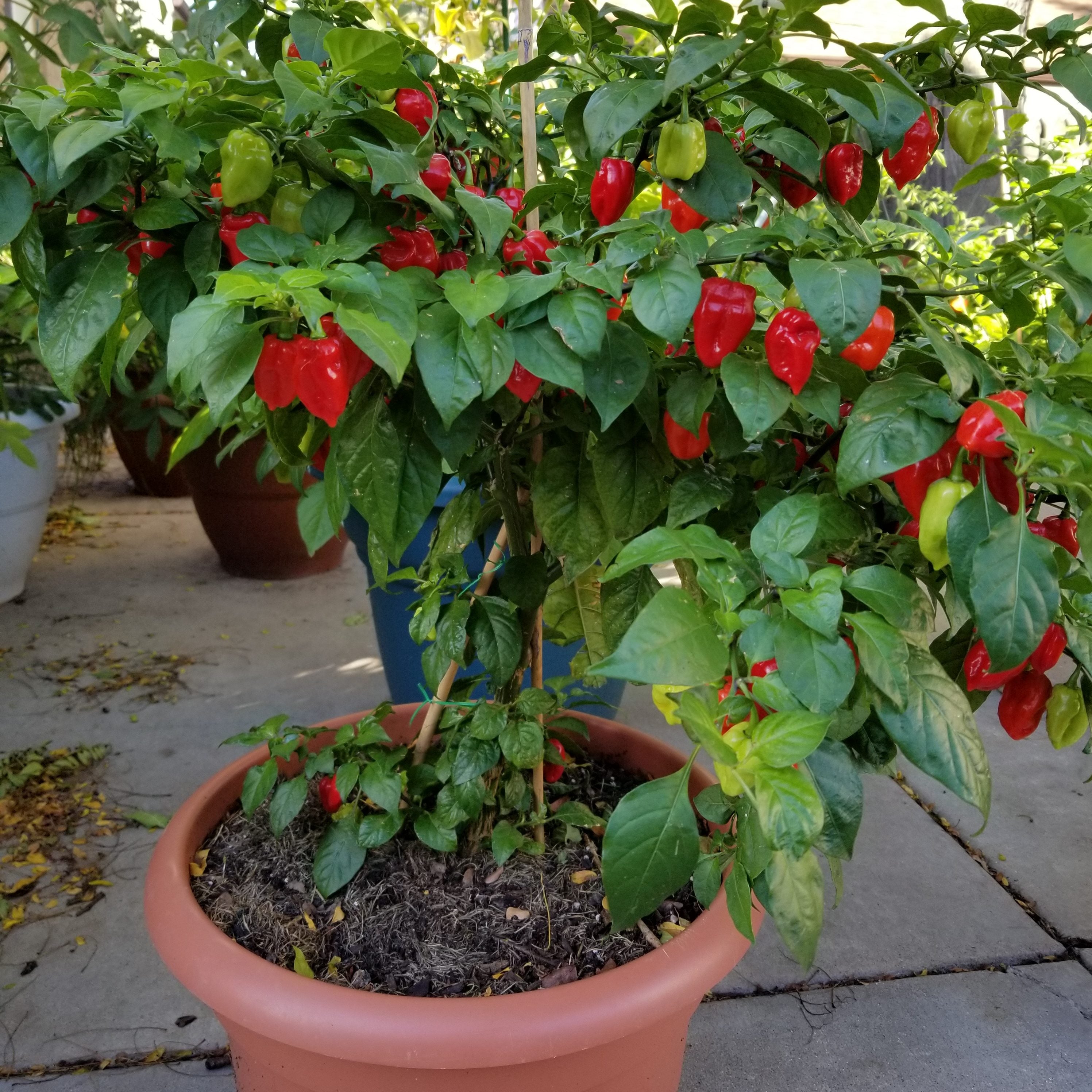Picking the Best Fertilizers for Peppers: Expert Recommendations
Picking the Best Fertilizers for Peppers: Expert Recommendations
Blog Article
Organic Vs. Synthetic Fertilizers: Which Is Best for Nurturing Healthy Pepper Plants?
In the realm of nurturing healthy pepper plants, the option between synthetic and organic fertilizers stands as a crucial decision with far-ranging implications. While both alternatives aim to supply crucial nutrients to sustain plant growth, the nuances of their effect on the soil, plant wellness, and the setting spark a debate that mirrors throughout the gardening neighborhood. Recognizing the unique advantages and possible risks of each plant food type is vital for pepper cultivators seeking to enhance their returns while preserving an eco-conscious and lasting technique.
Benefits of Organic Plant Foods
Organic plant foods supply an environmentally-friendly and lasting technique to nourishing pepper plants, offering essential nutrients without using synthetic chemicals. These natural plant foods are stemmed from organic sources such as garden compost, manure, bone meal, and algae, advertising dirt wellness and biodiversity. Unlike synthetic plant foods, natural choices release nutrients gradually, making sure a balanced and consistent supply for pepper plants to thrive.
One significant benefit of natural plant foods is their capability to enhance dirt framework and water retention. By boosting dirt health, natural plant foods promote beneficial microbial activity, which aids in nutrient uptake by pepper plants. Additionally, organic plant foods minimize the risk of chemical run-off, securing water sources from contamination and guarding the atmosphere.
Additionally, organic plant foods contribute to long-term dirt fertility by promoting the development of helpful dirt organisms. These microorganisms aid break down natural issue, releasing nutrients in a kind that is conveniently available to pepper plants. best fertilizers for peppers. By fostering a healthy dirt environment, natural plant foods support sustainable pepper cultivation practices that profit both plants and the environment
Disadvantages of Artificial Fertilizers
Artificial fertilizers, in comparison to their organic equivalents, position various downsides when utilized to nurture pepper plants, impacting both plant health and ecological sustainability. One significant disadvantage of artificial fertilizers is their tendency to seep nutrients from the soil quickly. This rapid leaching can result in nutrition discrepancies in the soil, causing plants to experience toxicities or shortages. Furthermore, artificial plant foods can harm helpful soil microorganisms, such as earthworms and useful microorganisms, disrupting the dirt ecosystem's equilibrium.
Furthermore, the overuse of synthetic plant foods can add to water pollution. Excess fertilizers not soaked up by plants can wash away right into water bodies, resulting in eutrophication, where algae blooms diminish oxygen levels in the water, hurting marine life. Artificial fertilizers are typically obtained from non-renewable sources, such as fossil gas, contributing to carbon discharges and environmental deterioration during their production.
Nutrient Absorption Contrast
Effective nutrient absorption plays an essential function in the general health and wellness and development of pepper plants. When contrasting organic and synthetic fertilizers in regards to nutrient absorption, natural fertilizers have useful site the advantage of supplying an extra balanced and slow-release source of nutrients (best fertilizers for peppers). Organic plant foods have a range of macro and micronutrients that are not only helpful for the plants however also promote healthy and balanced dirt microbial task, which aids in nutrient uptake. On the other hand, synthetic plant foods typically supply a quick launch of nutrients, which can bring about leaching and runoff, resulting in lower nutrient absorption prices by the plants.
In addition, natural plant foods improve soil framework and water retention capability, allowing pepper plants to access nutrients a lot more effectively. This improved soil top quality promotes root advancement, allowing far better nutrient absorption. Synthetic plant foods, although initially increasing plant growth as a result of their high nutrient focus, might prevent long-term nutrient absorption by derogatory soil wellness with time.
Environmental Impact Factors To Consider

On the various other hand, artificial plant foods, although typically even more concentrated and right away available to plants, can have harmful results on the environment otherwise applied properly (best fertilizers for peppers). Their manufacturing needs high power inputs, resulting in greenhouse gas emissions and adding to climate adjustment. Moreover, the overflow of excess synthetic fertilizers can infect water resources, resulting in eutrophication and harming water communities.
Ideal Fertilizer Practices for Peppers
To achieve this, it is crucial useful site to adhere to ideal plant food methods tailored to the particular needs of pepper plants. One essential technique is to execute a dirt test prior to using any fertilizers.
Another important practice is to fertilize pepper plants at the appropriate time. Normally, peppers gain from receiving fertilizer at growing and after that once again when they begin to flower. Over-fertilizing can lead to nutrient inequalities and hurt the plants, so it is essential to comply with advised application prices.
Additionally, picking a well balanced plant food with an NPK ratio that matches pepper plants' needs is basic. Inevitably, incorporating synthetic and organic plant foods deliberately can assist support healthy and balanced pepper plants while reducing ecological influence.
Final Thought

Organic see this here plant foods offer an environmentally-friendly and sustainable approach to beneficial pepper plants, providing crucial nutrients without the use of synthetic chemicals. Unlike synthetic plant foods, organic choices release nutrients slowly, ensuring a steady and balanced supply for pepper plants to flourish.
Synthetic fertilizers, in contrast to their natural equivalents, present various drawbacks when made use of to nurture pepper plants, affecting both plant health and wellness and environmental sustainability. When contrasting natural and artificial fertilizers in terms of nutrient absorption, organic plant foods have the benefit of giving a much more well balanced and slow-release source of nutrients.Moreover, organic plant foods enhance dirt framework and water retention capacity, permitting pepper plants to gain access to nutrients extra successfully.
Report this page